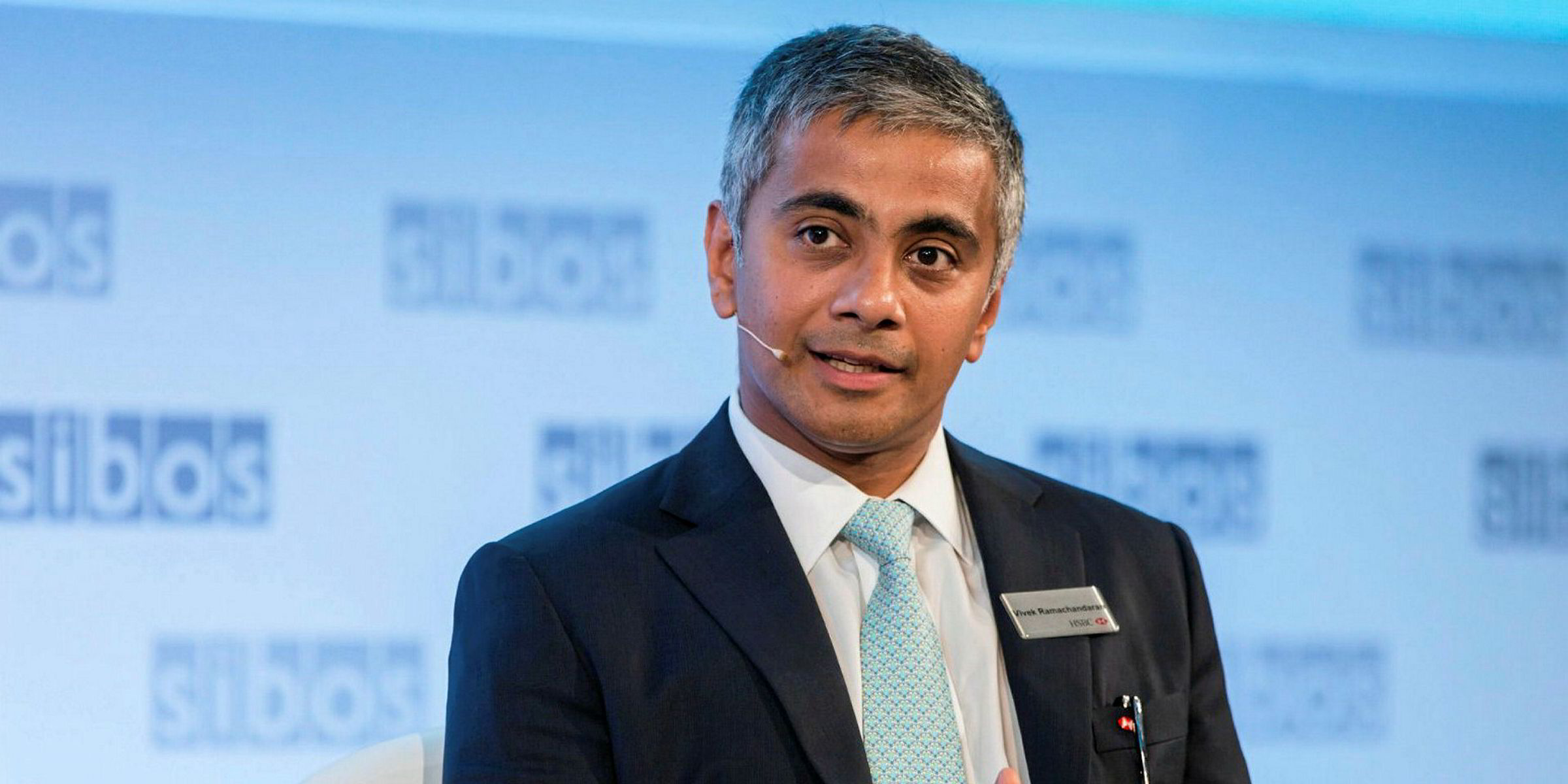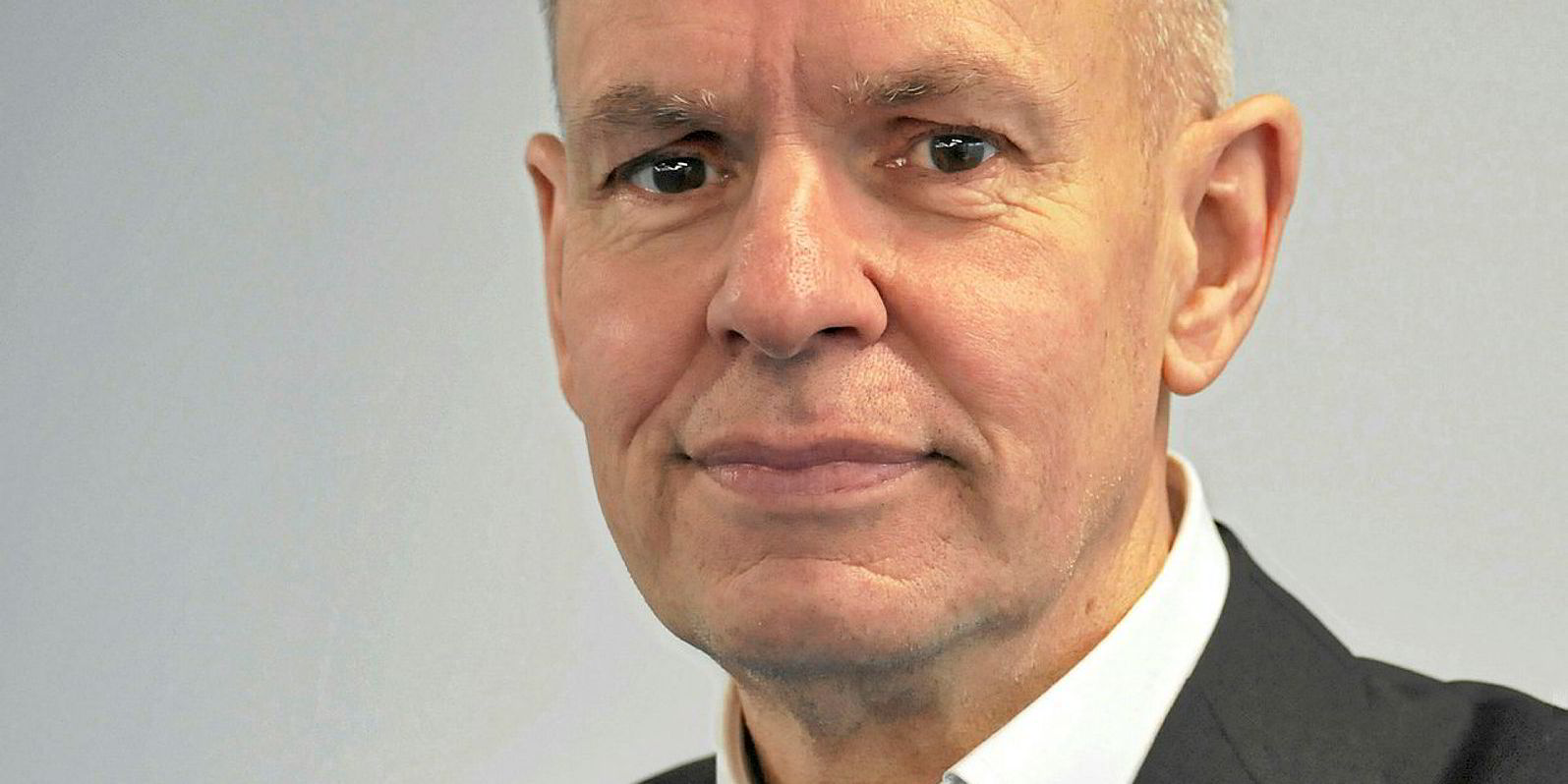Claims that the world’s first trade-finance deal using blockchain has just been undertaken have encouraged visions of a brave new world. Some argue the door is now open to a mass adoption of the technology in what is a $9trn market (Yes, that is trillion not billion).
Grain trader Cargill used the digital system in conjunction with financial backers HSBC and ING to cover a dispatch of soyabeans from Argentina to Malaysia.
A letter of credit was processed with the Corda blockchain platform from R3, a technology consortium claimed to be supported by 200 different firms.
Certainly, blockchain has been given a boost by this deal — not least because it involves blue-chip names amid a range of other trials.
Can Vivek Ramachandran, head of innovation and growth for commercial banking at HSBC, really be right when he claims blockchain is poised to do what containers did to general cargo: create a revolution that demands everyone join in or get left behind?
Banks, ports and traders will need to be onboard blockchain within five years, according to Ramachandran.
Over and over, there have been these magic wand, pixie-dust things come along... If 10% of what I’d heard in my banking career had come true, we would have the most amazing banks that run their infrastructure for a pound a week
Former member of R3 to UK parliamentary select committee
Blockchain, which underlies cryptocurrencies, is a shared ledger of transactions maintained by a network of computers on the internet.
Supporters say it can be adapted to increase the speed and lower the costs in, say, banking processes, such as security settlement, loan trading and international money transfers.
But others think the whole thing is part of a wider cryptocurrency hoax.
You certainly do not often find the Financial Times sticking the boot into innovation but take this from the media site’s Alphaville column on 2 May: “We have written before about how blockchain is a belief system, complete with prophets, disciples, traitors, rituals and schisms.”
And it gleefully seized on comments made at a parliamentary select committee in London, where a former member of R3 was scathing about its chances.
“Over and over, there have been these magic wand, pixie-dust things come along… If 10% of what I’d heard in my banking career had come true, we would have the most amazing banks that run their infrastructure for a pound a week.”
Only last September, JPMorgan Chase chief executive Jamie Dimon described the rising value of Bitcoin (based on blockchain technology) as a “fraud worse than tulip bulbs”.
He predicted a crash in the value of Bitcoin and indeed that cryptocurrency has fallen in value by 60% since January.
So is this a repeat of the 17th century when people went mad for tulips, as Dimon was referencing, or even another dotcom bubble?

There are certainly an increasing number of companies — often digital currency start-ups — offering their services to the maritime world.
Take 300Cubits, established by former Maersk Line executives Johnson Leung and Jonathan Lee.
It recently completed the first trial container shipment using its smart contract deployed on the Ethereum blockchain. The deal involved Brazilian textile importer LPR, an unnamed shipowner and the Westports box terminal at Port Klang, Malaysia. They used a new “shipping” currency called TEU Tokens and LPR executives believe that this technology “will change the way ocean shipments are done around the world”.
In March, trading house Mercia claimed to have shipped a cargo of crude oil from Africa to China using blockchain.
The technology is largely being used so far around payment systems, but digitalisation extends in many directions and uses.
But some also see it sweeping through the world of electronic documentation, online chartering and algorithmic fleet management.
Many general data systems, such as AXSMarine and Q88, have already been developed to enable marine companies to share information.
They could be expanded with the right level of support to encompass a wider group of players.
But there are still fears around data security and privacy. What happens in the event of technology failure if human experience, relationships and knowledge begins to be reduced as blockchain spreads through chartering or wider maritime uses?
To a certain extent, everyone is steaming slowly and cautiously ahead, trying to find their way in the digital shallows and shadows.
That is really what Cargill and others are doing. It is not a big bang and necessarily life changing — at least not yet. Blockchain, TEU Tokens and online fixing may yet be evolutionary not revolutionary.



